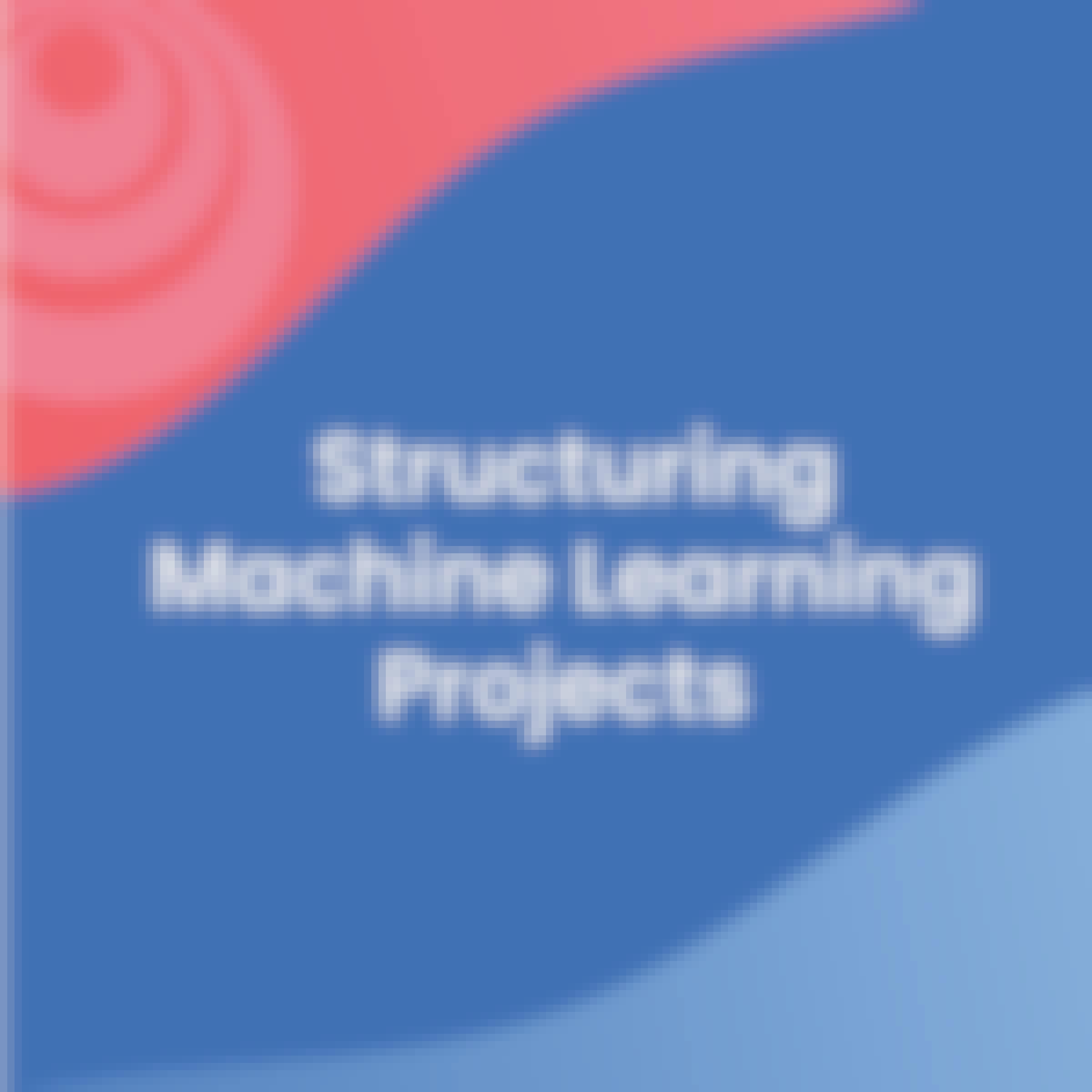Filter by
SubjectRequired
LanguageRequired
The language used throughout the course, in both instruction and assessments.
Learning ProductRequired
LevelRequired
DurationRequired
SkillsRequired
SubtitlesRequired
EducatorRequired
Explore the Meta Analysis Course Catalog
 Status: Free Trial
Status: Free TrialDeepLearning.AI
Skills you'll gain: Deep Learning, Applied Machine Learning, Machine Learning, Tensorflow, PyTorch (Machine Learning Library), Debugging, Artificial Intelligence, Keras (Neural Network Library), Data Quality, Performance Tuning
 Status: Free Trial
Status: Free TrialImperial College London
Skills you'll gain: Analytical Skills, Correlation Analysis, Regression Analysis, Sampling (Statistics), Statistical Hypothesis Testing, Data Literacy, Data Analysis, R Programming, Descriptive Statistics, Statistical Software, Biostatistics, Exploratory Data Analysis, Statistical Analysis, Statistical Programming, Statistics, Statistical Methods, Public Health, Probability & Statistics, Epidemiology, Statistical Modeling

University of Michigan
Skills you'll gain: Negotiation, Contract Negotiation, Conflict Management, Mediation, Sales Strategy, Arbitration, Communication, Influencing, Planning, Decision Making, Ethical Standards And Conduct, Cultural Diversity
 Status: Free Trial
Status: Free TrialSkills you'll gain: Software Development Life Cycle, Stakeholder Engagement, Agile Software Development, Project Management Life Cycle, Resource Management, Risk Management, Peer Review, Earned Value Management, Software Architecture, Development Environment, Stakeholder Management, Agile Methodology, Project Risk Management, Team Motivation, Kanban Principles, Project Schedules, Information Technology, Sprint Retrospectives, Interviewing Skills, Project Management
 Status: Free Trial
Status: Free TrialUniversity of California, Irvine
Skills you'll gain: Business Writing, Negotiation, Stakeholder Management, Project Performance, Business Correspondence, Creative Problem-Solving, Problem Solving, Conflict Management, Concision, Project Risk Management, Editing, Decision Making, Change Control, Grammar, Project Management, Creativity, Organizational Effectiveness, Project Planning, Emotional Intelligence, Relationship Building
 Status: Free Trial
Status: Free TrialSkills you'll gain: Prompt Engineering, Generative AI, ChatGPT, Interactive Data Visualization, Business Intelligence, Data Presentation, Infographics, OpenAI, Dashboard, Data Storytelling, Large Language Modeling, Artificial Intelligence, Program Development, SQL, Data Analysis, Content Creation, Business Ethics, Image Analysis, Virtual Environment, Natural Language Processing
 Status: Free Trial
Status: Free TrialSkills you'll gain: Prompt Engineering, Generative AI, ChatGPT, Exploratory Data Analysis, Data Ethics, OpenAI, Feature Engineering, Predictive Modeling, Large Language Modeling, Artificial Intelligence, Data Storytelling, Program Development, Data Modeling, Data Presentation, Predictive Analytics, Data Synthesis, Data Analysis, Data Cleansing, Data Visualization Software, Image Analysis
 Status: NewStatus: Free Trial
Status: NewStatus: Free TrialSkills you'll gain: Prompt Engineering, Generative AI, Large Language Modeling, ChatGPT, AI Personalization, Mobile Development, Data Ethics, OpenAI, Artificial Intelligence, Software Development Tools, Software Testing, Test Automation, Software Development, Machine Learning Methods, DevSecOps, Application Security, CI/CD, Cloud Applications, Natural Language Processing, Image Analysis
 Status: Free Trial
Status: Free TrialSkills you'll gain: Prompt Engineering, Generative AI, Large Language Modeling, ChatGPT, Data Ethics, OpenAI, Artificial Intelligence, Software Development Tools, Software Testing, Test Automation, Software Development, DevSecOps, Application Security, CI/CD, Natural Language Processing, Code Review, Program Development, Software Architecture, Content Creation, Image Analysis
 Status: Free Trial
Status: Free TrialSkills you'll gain: Data Validation, Spreadsheet Software, Data Analysis, Analytics, Data Manipulation, Excel Formulas, Data Compilation, Pivot Tables And Charts, SQL, Data Integration, Data Transformation, User Feedback
 Status: NewStatus: Free Trial
Status: NewStatus: Free TrialSkills you'll gain: Prompt Engineering, Generative AI, ChatGPT, Standard Operating Procedure, Customer Support, OpenAI, Customer Service, Customer experience improvement, Technical Support and Services, Procedure Development, Data Ethics, Large Language Modeling, Artificial Intelligence, Program Development, Customer Insights, User Feedback, Business Ethics, Language Interpretation, Translation, and Studies, Automation, Image Analysis
 Status: Free Trial
Status: Free TrialSkills you'll gain: Prompt Engineering, Generative AI, ChatGPT, Cyber Threat Intelligence, Security Information and Event Management (SIEM), Threat Modeling, OpenAI, Threat Detection, Cybersecurity, Incident Response, Malware Protection, Large Language Modeling, Artificial Intelligence, Natural Language Processing, Program Development, Anomaly Detection, Vulnerability Management, Content Creation, Image Analysis, Virtual Environment
In summary, here are 10 of our most popular meta analysis courses
- Structuring Machine Learning Projects: DeepLearning.AI
- Statistical Analysis with R for Public Health: Imperial College London
- Successful Negotiation: Essential Strategies and Skills: University of Michigan
- IBM IT Project Manager: IBM
- Project Management & Other Tools for Career Development: University of California, Irvine
- Generative AI for Business Intelligence (BI) Analysts: IBM
- Generative AI for Data Scientists: IBM
- Generative AI for Mobile App Developers: IBM
- Generative AI for Software Developers: IBM
- Analyze Data to Answer Questions: Google










